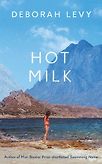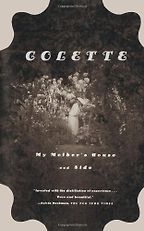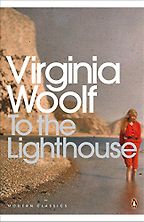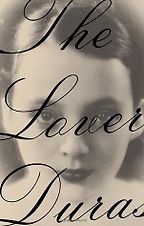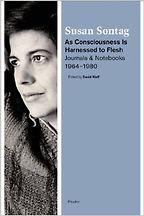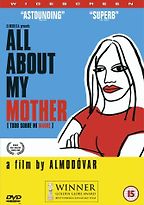You’ve chosen motherhood in literature as your theme; first of all, please can we talk a little about the mother in your new novel Hot Milk?
The mother in Hot Milk, Rose Papastergiadis, is spirited and controlling, and also a loving woman. I’m showing that she can be many contradictory things at the same time: infuriating and endearing. I’m also looking at the way that she uses her illness as a means of control. That’s a very complicated theme because we are looking at a history, not just a story.
There is a question at the centre of Hot Milk and Sofia, the daughter, nails that question. Sofia understands that her mother’s wishes and hopes for herself have been dispersed in the winds and storms of a world not arranged to her advantage.
Is that why she has so many mysterious symptoms, is that why she uses illness as a way to gather love and attention to her?
That’s a question; it is not necessarily answered in stone. I look at it through myth too, in the way I show Sofia’s need to separate from that dynamic with her mother and make a life of her own. I explore this in my essay, Things I Don’t Want to Know, where I say it’s as if ‘mother’ is a delusion, and ‘the world loved the delusion more than it loved the mother’.
You write about an uncanny link between the bodies of Sofia and her mother, Rose. You write, ‘Her arm is my arm,’ and there is that beautiful description of her ‘folding her growing child back into her womb in the way an aeroplane folds its wheels back into its body after take off’. I wondered if you thought that the mother-daughter bond is always necessarily so bodily.
Yes, the link between the mother’s body and her child’s body is there, isn’t it? Sofia is her mother’s carer, so she feels that, in a way, she is her mother’s legs.
You also write very powerfully about the way they look at each other: Sofia’s gaze at her mother, and the way her mother gazes back at her. Would you talk a bit about that?
The female gaze is something that I look at through the myth of Medusa, which is all about the gaze, the female gaze returned. We have the gaze of Sofia on her mother – both as a daughter and as an anthropologist. We know that parents and children scrutinize each other very closely. Children are like a camera on their parents; these are the first people in our lives. At the end of the book, I deliver the gaze to the mother, with Rose looking at her daughter. In a sense, Rose’s is a more discreet gaze than Sofia’s, and I guess that Rose comes into her own at the end. I hand the book over to her, and I give her this eternal gaze, the last word.
Moving on to the books you’ve chosen, we have My Mother’s House by Colette.
I love Colette’s work. In fact, Colette has been my comfort reading ever since I was about fourteen. I return to her work over and over, and I just don’t think there is any writer for me who not so much describes but invokes nature and nurture in a more surprising and thrilling way.
So, if we are to believe her, Colette has a perfect childhood in a flowering garden in Burgundy. Nature and nurture, insects and animals do all the talking, and her mother, Sido, is as abundant as a fruit tree in the way that she lavishes care on young Colette. She has four children, who scatter across the house and garden. They are doing their own thing, but they always return to the mother.
Doris Lessing refers to a scene where Sido makes herself a cup of hot chocolate at night. Above her bed, there’s a spider in a web, and the mother would wait for the spider to let herself down and sip from the hot chocolate, and then, heavy with its nectar, it would go up again. I love that image so much. It doesn’t really matter if it is imagined or true.
We know that Sido never cut her daughter’s hair – there are pictures of Colette with long braids past her knees. So when Colette marries her first husband, a scoundrel who gets her to write and then puts his own name to her Claudine books, Colette still has these braids, and she cuts them off. That is the separation, I think, from her mother.
I’m also interested in the way that Colette’s father is portrayed. He seems to have one leg from a war injury, he is more intellectual than his wife, he’s wilder, and Colette writes about him fondly, but, somehow, he seems to be a peripheral player in this abundant rural childhood.
Having read this book and most of Colette’s books, I feel I have participated in her fictional childhood. Colette writes, although I don’t think this is in My Mother’s House, ‘What a wonderful life I’ve had. I only wish I realised it sooner.’ I think that’s a wise quote. Also, there is another, very Colette, quote: ‘Never touch a butterfly’s wing with your finger.’ It’s as if her mother told her that, and she’s remembered it. I think these are all incredible things.
Perhaps from there we should move on to To the Lighthouse, a book which I adore, as it seems that Mrs Ramsay is not a million miles away from the maternal figure of Sido.
To the Lighthouse is one of my favourite of Woolf’s novels. Aristotle tells us that all politics starts in the family, and you really do see that in To the Lighthouse.
Woolf always said that there is no symbolism in the lighthouse at all, and I think we should believe her. All the same, I do think that the lighthouse, in a way, is Mrs Ramsay because the lighthouse is there to protect us from harm and from hazards, and Mrs Ramsay is a self-sacrificing, patient mother who attends to everyone’s needs and tends to protect them from hazards. Of course, that was an impossibility for Woolf, because her mother died when she was 13. So she is really trying to recreate her mother and also her father, Mr Ramsay. She’s brought them to life – I wonder what that must have been like for her to write. In Hot Milk, I refer to To the Lighthouse as well as Woolf’s earlier novel The Voyage Out. It seems to Sofia that her mother is a hazard, and she says, later, ‘I’ve been waiting for her to take the voyage out of her gloom, to buy a ticket to a vital life with an extra ticket for me. I’ve been waiting all my life for her to reserve a seat for me.’
We looked at Colette’s father, and now if we look at Mr Ramsay, he is a self-pitying philosopher whose mind is rather cold and rational, and he is selfish and self dramatizing. Mrs Ramsay is portrayed by Woolf as beautiful and warm, intuitive and the centre of the household, but also very controlling. The really excellent thing about that first section of To the Lighthouse, which revolves around the relationship of Mr and Mrs Ramsay, is that they love each other. They really are in love. I think that’s always the best position to write from. In that relationship, Woolf is writing from a position of love, with all its complexities.
When I was writing Hot Milk, I was very much thinking about Mrs Ramsay and how Woolf had tried to find all the good things in the rituals that were available to women of her mother’s generation. She starts off with Mrs Ramsay knitting a stocking for the lighthouse keeper’s son, and she ends it with Lily Briscoe finishing her painting, completing her vision. So we start with a sock and we end with a piece of art, and Woolf is almost asking herself which is more important. We know that Lily Briscoe is a sort of avatar for Woolf, but the book is actually an incredible portrait of Mrs Ramsay – of love, of control, of self-sacrifice. Some of that was in my mind while I was writing Hot Milk.
Shall we move on to The Lover by Marguerite Duras?
It seems to me that out of all the books we’re discussing at the moment, the mother in The Lover is the saddest. She seems so unhappy, sour, and abject. She’s living in what used to be called Indochina, in genteel poverty and is very concerned with appearances. There is no celebration of the love that passes between mother and daughter, just a fear of how things might seem to others.
So the female protagonist of The Lover has to separate from this sad and harsh mother. This is a wonderful moment: she puts on a fedora hat and gold sandals and, in so doing, separates from her mother and becomes someone else. She is trying things out, she goes on a ferry and that’s when she first catches the eye of the Chinese banker. There is an insinuation that the banker gives her money, and that this young woman then gives the money to her mother.
The two things to say about this in terms of mothers in literature is that she is a sad, impoverished, genteel mother living at a time when the father isn’t there – so this must have been quite transgressive – and she is just trying to keep things going, but not doing very well. I guess Duras’ attention is not on the mother there, it is on how the daughter separates from the mother, that incandescent moment when she is wearing those gold sandals and fedora hat, and standing on a ferry, sailing away to make something else of herself.
Your fourth book is As Consciousness is Harnessed to Flesh – Susan Sontag’s collected diaries and notebooks.
There’s some very interesting stuff that Sontag writes about her mother here, and I was thinking about these diary entries when I was writing Hot Milk. They are some of the least fragmented diary entries; it feels like Sontag has worked them. This is a quote from Sontag: ‘I was mother’s mother,’ she felt ‘that somehow I was author of her happiness’. She felt that it was her job to keep her mother alive for the duration of her own childhood, and that she’d sacrificed her own need ‘to learn and to be dependant’. That’s the thing, children need to be dependant. It’s what makes us feel safe and it’s how we learn about love.
Sontag says, ‘I’m afraid of my mother, afraid of her harshness and coldness, and, of course, afraid that she’ll just collapse, fade out on me, never get out of that bed. My ultimate project is to keep her afloat, alive.’ This seemed important to me when I was writing Hot Milk, it gave me a purchase on Rose Papastergiadis in the way that Sontag felt that she had to make herself less in order to keep her mother’s attention and love. Sofia echoes this when she says, ‘I make my day smaller to make her day bigger.’ Sontag writes, ‘I cringed to make myself smaller, to hide more of myself, so I wouldn’t appear threatening to her.’ This was something that I extended and thought about for Sofia.
Your final pick is the film All About My Mother by Pedro Almódovar. Why have you chosen this?
It’s an absolutely brilliant, subversive and very loving film. I was thinking about the quote from Simone de Beauvoir in The Second Sex, ‘One is not born, but rather becomes, a woman’. Almódovar explores this in All About My Mother. It means that gender is an aspect of identity that we acquire: we work with or against mainstream cultural interpretations of being female and male. Almódovar asks us, ‘what is an authentic woman, what is an authentic man?’
What interests me is that Almódovar dedicated his film to all women who act. By this, he doesn’t just mean actresses, he means it in the sense that we are performing roles: the role of mother, daughter, wife, lover. In the film, he is looking at definitions of self that are not fixed in mainstream narratives.
The film was also in my mind as I was writing Hot Milk. It was in the mix with Colette’s flowering garden in Burgundy – nature and nurture, insects and animals; it was in the mix with The Lover and the sad, harsh mother, who just seems to have no joy at all in her. Then there is Sontag who has really gazed at her mother, tried to figure out what’s going on, and talks about making herself smaller. And with To The Lighthouse we return to self-sacrificing, patient, creative – actually, enormously creative – Mrs Ramsay, who is also very controlling. I was also extending some of the themes that I gave an airing to in Things I Don’t Want to Know, namely that ‘The world loved the delusion more than it loved the mother.’
I think it would be much better for all of us to love the mother herself, and not the delusion. Is that possible?
In Things I Don’t Want to Know, I wrote that the modern mother is required to be ‘passive but ambitious, maternal but erotically energetic, self-sacrificing but fulfilled’. This is the call made on strong, modern women. It is best not to take that call.
Interview by Emily Rhodes
May 18, 2014. Updated: August 29, 2023
Five Books aims to keep its book recommendations and interviews up to date. If you are the interviewee and would like to update your choice of books (or even just what you say about them) please email us at [email protected]
Five Books interviews are expensive to produce. If you've enjoyed this interview, please support us by donating a small amount.

